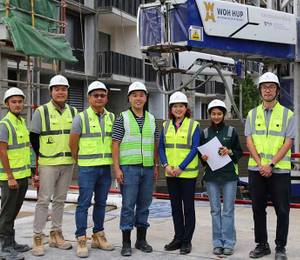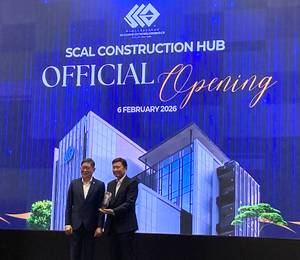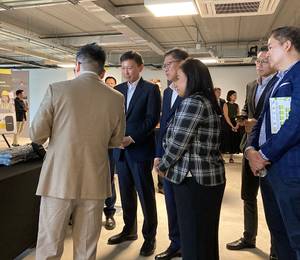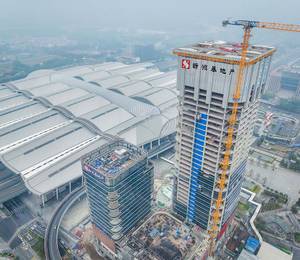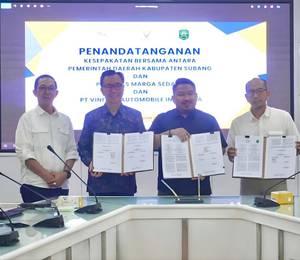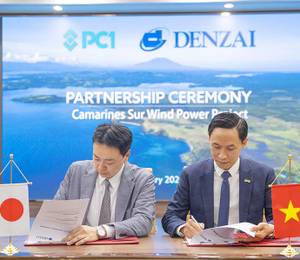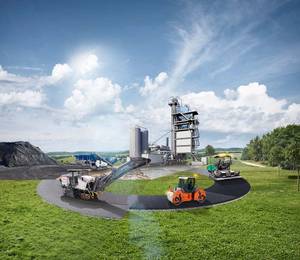The Building and Construction Authority (BCA) has announced new initiatives to further support transformation in Singapore’s built environment (BE) sector, helping it become more productive, digitalised and sustainable. These initiatives include:
1). Expansion of Contractors Registration System (CRS) to a nation-wide registry
BCA will expand the scope of its CRS from a public sector registry to a nation-wide registry of construction firms. As such, all firms hiring foreign construction workers will be required to register under the CRS. This move will be implemented in a calibrated manner to minimise disruption to the industry.
BCA will also raise the CRS entry requirements to keep pace with the current market conditions to ensure that firms hiring foreign construction workers have the minimum financial capabilities and experience to sustain their operations and deliver projects.
Firms will be given time to meet these entry requirements. BCA will announce further details on the changes later this year.
2). New Energy Efficiency Grant (EEG) for the construction industry
The government will be expanding the EEG to new sectors, including construction. This grant will help local firms adopt energy-efficient construction equipment. There will be two tiers of support:
-
Base Tier, where eligible local construction firms will be able to receive up to 70% of funding support for pre-approved energy-efficient construction equipment, up to S$30,000.
-
Advanced Tier, which supports companies that wish to make larger investments to drive greater energy efficiency, up to S$350,000. The energy-efficient equipment supported under the Advanced Tier does not need to be pre-approved, but must demonstrate energy savings above 350-t lifetime carbon abatement. The grant amount for this will be based on committed energy savings or up to 70% of the equipment cost, whichever is lower.
According to BCA, companies registered and operating in Singapore with (i) at least 30% local shareholding; (ii) at least one local employee; and (iii) group annual sales turnover of no more than S$500 million will be eligible for support under the EEG. BCA targets to launch the EEG for the construction industry by the end of 2024. More details will be announced later.
3). Extension of Productivity Innovation Project (PIP) scheme
The PIP scheme will be extended until 31 March 2025. This scheme supports investments in automation and productive technologies, including integrated digital delivery (IDD) systems, robotics & automation (R&A), and design for manufacturing and assembly (DfMA). The PIP co-funds up to 70% of the costs of adopting these solutions, capped at S$10 million.
One of the firms that has benefited from the PIP scheme is Techniques Air Conditioning and Engineering. The mechanical, electrical and plumbing (MEP) subcontractor set up four production lines to automate the cutting and welding of pipes in its off-site factory. The off-site automation has helped increase its productivity by at least 40% compared to manual cutting, welding and quality inspection processes.
Another example is Great Resources M&E Contractor, a builder who has tapped on the PIP and will deploy an automated drilling and anchoring robot on-site, replacing manual drilling and anchoring processes. This will enable the firm to increase productivity by at least 30%, with one-third less workers.
4). Update on Growth and Transformation Scheme (GTS)
Last year, it was announced that the government set aside S$90 million under the GTS to co-fund up to 70% of qualifying costs in areas such as equipment, software and training. Since then, both the CapitaLand Development and CDL-led alliances have applied for and secured funding support for their initiatives.
The GTS supports initiatives that build best-in-class capabilities and enable holistic transformation for BE value chains. These initiatives are undertaken by groups of firms – each led by a progressive developer, and includes consultants, builders, and subcontractors – to achieve mutually beneficial transformation outcomes.
CapitaLand Development (the developer) and its partners are focusing on collaborative contracting, where they will be amongst the first to pilot this contracting approach for the private sector. CapitaLand will also establish and maintain a common data environment (CDE) platform that connects value chain partners working on their projects.
The CDE platform will allow value chain partners to refer to a single reference point for key project information and BIM models, and create a conducive environment for upfront collaboration. CapitaLand’s partners include Surbana Jurong Architecture, Threesixty Cost Management, and Woh Hup.
Meanwhile, City Developments Limited’s (CDL) partners include ADDP Architects and Woh Hup. For the CDL-led alliance’s initiatives, Woh Hup is implementing an IDD app, which will compile and analyse key metrics from project sites with near real-time tracking, on a digital dashboard. Using the IDD app, Woh Hup will be able to generate detailed reports such as the material wastage, manpower productivity report and progress tracking for different stakeholders. This is expected to improve productivity by 88% at use case level, in the data collection, analysis and reporting processes.
Woh Hup is also implementing the purchasing order, delivery order, invoice and payment certificate (PDIP) app. This will integrate the firm’s contracts, procurement and finance teams, and allow them to track approvals and payment statuses with a new, single digital workflow. This effort is expected to reduce the time taken for approvals, and facilitate prompt payments to Woh Hup’s subcontractors and suppliers. To further streamline processes, Woh Hup is exploring uplifting the digital capabilities of its supply chain via direct integration with its suppliers’ payment systems.
Image: Dimitris Vetsikas/Pixabay

